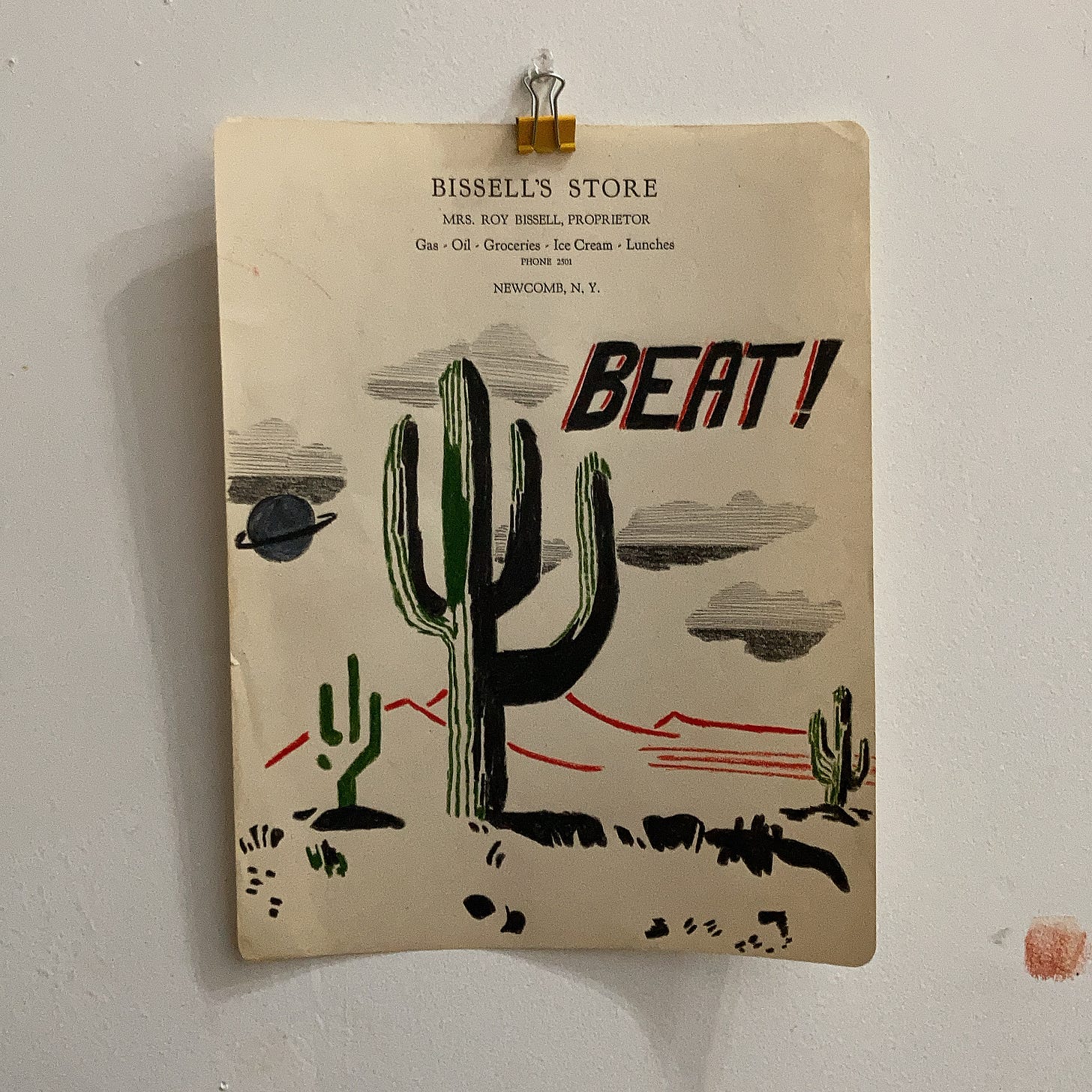Dear reader,
In July, I wrote about how I haven’t been working. What I didn’t include was where the decision to orient myself towards other ways of being came from, partially because it seemed obvious.
If you’ve followed my work closely since the pandemic, you’d track that I have not been without a project, an exhibition, a market, or a cross-country or international move for the last three years.1 When my most recent exhibition of drawings wrapped on the heels of an overdue and exhausting visit to see my mother, a good time to pause revealed itself to me. A voice said, Please stop with the things and the deadlines and the money and the responsibility to other people’s dreams.
My reason for not working was absent from July’s letter because I also wanted to see how it felt to unabashedly announce to thousands of people that I’ve been doing jack-shit without giving one. Because as poetic as I make it out to be, actively not working or earning is anxiety provoking and shame inducing.
I know what it’s like not to have work at my doorstep and to direct my energy towards getting it. For me, this looked like like years of studying and striving, creating heaps of writing, drawings, and content, and then seeking out the aforementioned opportunities to showcase it. At one point, I even paid Instagram for ad placements.
I don’t know what it’s like to have satisfying work possibilities and to consciously deny them in favor of absolutely nothing, but I’m ready to experiment.
By default, I often try to assign meaning to my choices. Why stop working now? Is it because I’m lazy? Is it because it’s summer? Am I paralyzed by grief, or am I actually okay? Do I like what I do, or is it time to do something else?
I’m hesitant to say this pause is because I’m burnt out, but that’s only because it seems trendy to do so. Everyone else says they’re burnt out; I should say something different. But then again, if everyone is burnt out, it actually makes sense that I would be too. Things are trendy for a reason.
Whatever the case may be, the impulse to give a reason for what I’m doing — or not doing — is yet another line of thinking that I inherited. The urge to supply proof that I am deserving of my choices is strong. When asked what I’ve been up to lately, it feels better to deliver a flowery mouthful like, “I’m taking a break from work right now because I’ve worked a lot recently”, or “I’m focusing on myself right now because my family tree just got tee-peed”.
I did just work a lot, and the matriarch of my family is suffering, but responses like these are meant to convince people that I have good reason — recent hustling or heartache — to choose a life less burdened.
One problem with this logic is that reasons, like excuses, are often temporary; they dry up. Eventually, enough time will pass and I will no longer be able to rely on being burnt out or losing a parent to dementia to explain why I’m not pursuing. What if I discover during my hiatus that I actually don’t want to do more than the bare minimum again? What will my excuse be then?
Another issue with compulsive over-explaining is that it positions me to live life according to what I assume other people think about or expect from me.







